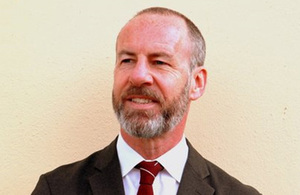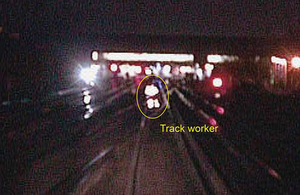The SatelLife Competition, now in its third year, is looking for innovative proposals that have the potential to use data collected from space to benefit our economy, health or the environment.
Ideas from last year’s competition included a wristband that uses satellite location data and communications services to identify the locations of swimmers and surfers in the sea and a tool that would map change in urban areas using satellites and algorithms, identifying where building is taking place and potential sites for development.
Satellites support the economy and everyday life, and this competition gives young people the chance to test their ideas with industry experts and perhaps one day become part of the fastest growing sector of the UK economy. The UK space industry is a success story – it supports 38,000 jobs and generates just under £14 billion in revenue across the country.
Science minister Chris Skidmore said:
Young people are bursting with ingenious ideas and this competition offers a great opportunity for their suggestions about how best to use data collected from satellites.
I would urge young people to get involved and hopefully their ideas will become a reality in the near future, benefiting us all. The competition is a great example of how the government’s modern Industrial Strategy can inspire and engage young people in the challenges and opportunities of the future.
Last year’s individual winner was Ieuan Higgs, a student from Chippenham in Wiltshire. The group winners were four school friends – Ellie Jones, Jessica Knight, Summer Jeffery and Emily Haddrell – from Truro in Cornwall. The overall winner in 2017 was 13-year-old James Pearson from Lincolnshire, who came up with an app to provide information on coastal flood risks.
Ieuan Higgs, 21, a student at the University of Reading, who has been offered a job in the space sector when he graduates since winning last year, said:
Entering the SatelLife Competition allowed me to develop my critical thinking and problem-solving skills in an interesting, challenging way.
This has certainly helped me to push forwards on my way towards finishing university and provided me with the confidence to pursue my interests as I prepare to launch an exciting career.
The competition, which is open to those aged 11 to 22 and split into three age groups, aims to support the development of science, data handling and technological skills. There are two overall prizes of £7,500 for the best individual and best team. A further seven entries from across the age categories will win £5,000, making a total prize fund of £50,000.
Previous winners are making progress on turning their ideas into reality. Medical students Christopher Law, 20, Thomas Franchi and Hammad Jeilani, both 21, from London came up with an idea to use satellites and drones to help people in isolated areas who cannot access basic health care such as vaccines, birth control or medicine. They have now formed a company, called MEDeus Ltd, and are working with the Advanced Manufacturing Research Centre in Sheffield, whose engineers have produced early-stage drone designs. They have also been invited to join the Westcott Business Incubation Centre.
Elliot Vale, from Stourport-On-Severn, was a winner in 2017 and is developing his GeoRescue app focused at people who live in or travel to high-risk natural disaster areas. Elliott has started a business and is planning to enter a business incubator this year. While Sam Frampton, another winner from 2017, used his experience to pursue a career in the space industry and is now working for Thales Alenia Space.
The judging panel will be made up of experts including representatives from the UK Space Agency, the European Space Agency, the Satellite Applications Catapult in Harwell and industry.
Gemma Wilson, Knowledge Exchange Manager at the Satellite Applications Catapult and one of the expert judges, said:
The SatelLife Competition is a fantastic opportunity for future space entrepreneurs to showcase their innovative ideas.
This competition could be your first step to an exciting career in the space sector as you identify how satellites can provide unique solutions to the everyday challenges we face here on Earth.
Entries can be as teams or individuals and all prize winners will be able to pitch their idea to a panel of ‘dragons’ from the space sector who will offer more prizes. Over the last two years the competition winners have been offered further funding, patent advice and invitations to discuss job opportunities as well as introductions to the other relevant experts for further help.
The competition closes on 3 March 2019. Visit the SatelLife Competition entry page for more information and to apply.

